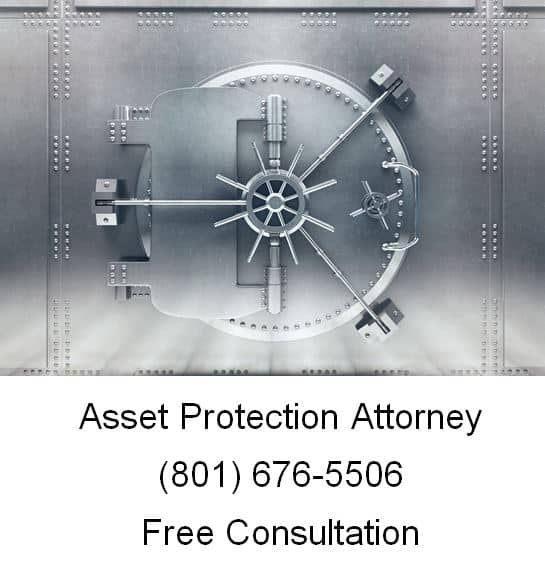In a surprise move, the Utah Supreme Court overturned key features of the state’s Limited Liability Company law leaving many experts scrambling for explanations and raising the issue of how particular asset protection strategies may be impacted by the decision. Because I am an asset protection lawyer, I want to help you by looking at the legal developments leading up to the Court’s decision and pose the question of the proper role LLC’s should play in your business and asset protection planning.
You Can’t be Sued for Inside Liability
LLCs are different than an asset protection trust. Since LLC’s were widely adopted by the states in the early 1990’s most lawyers agree that this entity is often a convenient and efficient vehicle for operating a business or holding investment real estate. It is designed to provide more realistic liability protection than a corporation, without the formalities and tax issues which often make corporations difficult and expensive to operate and maintain.
As its name makes clear, the legal purpose of the LLC is to protect you from legal liability for any debts or obligations associated with the particular venture or property within the LLC. If you operate a business in an LLC and the business goes broke, you’re not responsible for paying any of the outstanding bills. The same is true when you put an investment property in an LLC. If a tenant gets hurt on the property you cannot be held legally responsible. These types of risks – which arise out of the operation of a particular business – are known as “inside liabilities.” The law in every state is very specific that you cannot be sued for any liability of your LLC. You may lose the business or the property in the LLC, but your personal loss is limited to the amount of your investment. Your other assets are not at risk for the debts of the company (unless you personally guarantee the obligation.) Unfortunately physicians and other professionals can’t shield themselves from malpractice claims by operating as an LLC, but for related activities, not requiring a professional license, the LLC works very well.
Protect Personal Assets with LLC’s
Besides this protection from inside liabilities, LLC’s have sometimes been used as a strategy to shield personal assets from other types of claims, “outside liabilities,” not associated with the particular business activity. For example, you may own an investment property which represents a substantial portion of your savings. Your idea is that you would like to insulate and shield that valuable property from any future claims against you associated with your business activities. Your goal is simply to shield your savings from the risks of your business. To accomplish this sensible goal, you transfer the property to a newly formed LLC. After the transfer, you and possibly other family members would own the membership interests in the LLC rather than the property itself. Have you achieved any asset protection benefits with this plan?
Charging Order Protection
When most of the LLC legislation was passed by the states in the early 1990’s it was believed that LLC’s could provide some good asset protection in situations like this because the membership interests were protected by a “charging order” in the same manner as partnership interests. Those membership interests in the LLC that you received were protected from foreclosure by a creditor under the original law. A judgment creditor was not legally permitted to seize LLC interests as he could with shares of stock or other property you own. The most the creditor was permitted was to wait for any distributions to come out of the LLC. There was no right to vote or control the LLC in any manner, just the right to wait for the possibility that someday you would distribute income or sales proceeds out of the LLC into his eager hands. Fat chance right? And that’s why the charging order remedy of the creditor was viewed as weak and ineffective and that was why you chose to transfer your property into the LLC as a part of your plan. It is certainly far better to attempt to limit a judgment creditor to a hypothetical claim against future distributions then to risk losing your valuable property and your savings nest egg right in a future lawsuit. Many early asset protection plans were established based on this fairly simple plan: 1) Transfer property or investments into an LLC; and 2) Hold all the LLC membership interests and maintain complete control and all the benefits of the property while limiting the creditor to an ineffective charging order remedy.
Olmstead vs. FTC
In June of 2010 the Utah Supreme Court visited the charging order issue in a case involving a single member LLC. The court reasoned that the charging order limitation in Utah law was intended to protect other existing members from an uninvited and unwanted intrusion of a creditor into the affairs of the business. If you and your brother form an LLC to own property, it is certainly true that your brother (and you) will be financially injured if your membership interest is seized and your judgment creditor becomes the owner of your LLC interest. The intent of the law was to prevent that from happening by limiting a creditor merely to your share of the distributions – without any say in management. However, this same logic does not apply if you are the only member of the LLC since there are no other partners or members who are prejudiced or injured if your interests are seized. That certainly makes sense so far.
What surprised many experts was the Court’s holding that the Utah LLC Act does not provide that a charging order is the exclusive remedy available against an LLC membership interest. Instead the Court ruled that an LLC membership interest is subject to seizure by a creditor in the same manner as corporate stock. As a result, a creditor of a member of either a single member LLC or a multi-member LLC is permitted to seize a membership interest under Utah law. Although this decision is consistent with some recent court cases as well as the governing law in California and several other states, it was a surprise to those in the so-called asset protection friendly states such as Utah, Nevada, Delaware and New Mexico where it was believed that the charging order protection in state law could be relied on as the foundation of the asset protection planning.
Future Planning with LLC’s
The Utah Courts decision did not impact the usefulness of LLC’s as strong business vehicles to protect against business risks and claims-what we have called the inside liability of the business. If you are operating a business or holding risky assets such as investment property, the LLC will often be the most effective choice of business entity.
If you create an LLC to hold assets, this decision, as well as existing law in California and other states, holds that your membership interests are vulnerable to seizure by a judgment creditor. This rule applies whether your LLC is a single member or a multi-member company. Although Utah may now amend its LLC law to counter the impact of Olmstead, owning LLC membership interests in your name is unlikely to provide any significant asset protection for you.
In order to avoid a potential foreclosure of the LLC interests and an outcome similar to the Olmstead case, many lawyers have been recommending that clients put their membership interests into a protective trust to achieve the level of asset protection desired. For example we have been using a Family Savings Trust for this purpose for many years and your lawyer should be able to help you with choosing the structure that most efficiently accomplishes your asset protection planning.
Free Consultation with Asset Protection Lawyer
When you need to protect your assets, or when someone sues you for everything you’ve got, call the asset protection lawyers at Ascent Law at (801) 676-5506 for your free consultation. We’ll help you.
8833 S. Redwood Road, Suite C
West Jordan, Utah
84088 United States
Telephone: (801) 676-5506
Recent Posts


